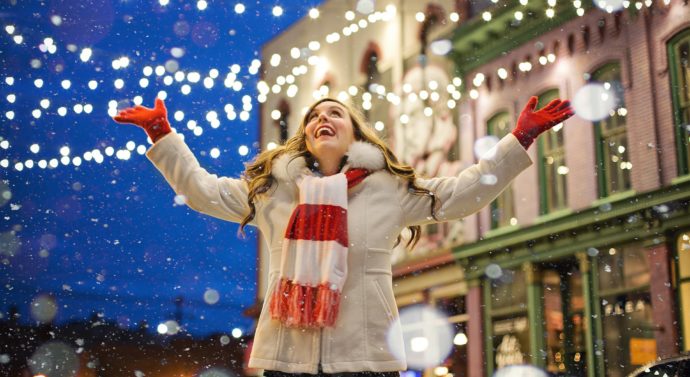
Holiday traditions: Students celebrate holidays from Kwanza to Mawlid el-Nabi
Weekend December 8, 2017, Comments Off 357Article by Johan Englen
As the holiday season draws near, most Drury students will undoubtedly make the trek home to celebrate Christmas. However, many Drury students celebrate a wide array of holidays during this season. The world is filled with different celebrations at this time of the year. The Mirror will go over some of them for your own edification. Some of them were even new to us!
Kwanzaa is celebrated by many black communities in America to commemorate the spirit of community and African ancestry. It is held Dec. 26 to Jan. 1 and normally involves a large feast and gift exchange on the last day.
Bodhi Day is celebrated by Buddhists on a day in Dec. or Jan. to commemorate the day Buddha vowed to stay in meditation under a Bodhi tree until he found the foot of suffering and discovered how to break free from said suffering. This is what might be called “Nirvana.” Normally, it is celebrated with services, chanting of the sutras or a meal combined with readings. Celebration style differs from sect to sect.
People of the Islamic faith celebrate Mawlid el-Nabi around this time of year. This year it fell from Nov. 30 to Dec. 1. This holiday is a celebration of the birth of the Prophet Muhammad. The day is often celebrated with street carnivals and large street processions in Muslim majority countries. It should be noted that Wahabi and Salafi Muslims regard the celebration as unnecessary and its celebration is banned in Saudi Arabia and Qatar.
One Drury student shared with The Mirror another religious celebration going on during the holiday season.
Freshman basketball player Lucas Turnage is a Christian. However, he is qualified to talk about the Jewish religion and its holiday season celebration of Hanukkah because he was born and raised in Israel. His parents are American Christians who finished their master’s degrees in Israel.
“Hanukah is a holiday that celebrates Jewish perseverance and survival,” said Turnage.
Turnage explained that the Seleucid Empire, a remnant of the Alexandrian Empire that stretched from modern day Turkey to Pakistan, were oppressing the Jewish people by sacking their temple and outlawing Judaism. The Jews revolted, taking back their temple and their rights. There was not enough oil to burn the lamps but the little oil they did have lasted for eight days.
“This is why Hanukkah is called the Festival of Lights. It’s all about the miracles God provided and the perseverance of the people,” said Turnage.
Turnage has had the unique perspective of experiencing Hanukkah first-hand in Israel, where the events that Hanukkah celebrates actually happened.
“Everyone goes to the Western Wall, which is the only remaining part of the temple, and they pray and light a big menorah. And I have been to too many celebrations to count, but they are always with friends. We play games like spin the dreidel and make latkas, which are basically hash browns, and eat apple sauce. It’s really a great time with friends and family to reflect on Gods’ miracles,” said Turnage.
Do you have any traditions that you celebrate? Tweet them to us! We want to celebrate your religion and your culture this season. However you celebrate, happy (many) holidays from The Mirror staff!